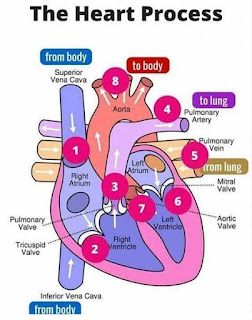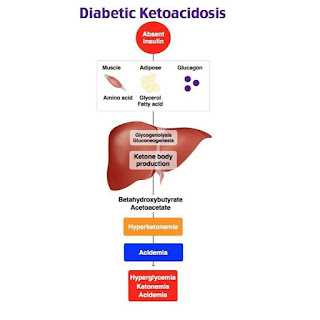Things you should know about MALARIA BY Miss Olawumi T
MALARIA
🗣🗣 *Definition* :
Malaria is an acute and chronic parasitic disease transmitted by the bite of infected mosquitoes and it is confined mainly to tropical and subtropical areas.
*Etiology*
The disease is caused by 4 species of protozoa namely
👉🏽plasmodium falciparum
👉🏽Plasmodium vivax
👉🏽Plasmodium malariae
👉🏽Plasmodium ovale
Others include::::::::
👉🏽plasmodium knowlesi
👉🏽plasmodium simium
🤔🤔The primary vector of malaria is the
female Anopheles mosquito
*Mode of Transmission:*
👉🏽.The disease is transmitted mechanically through the bite of an infected female anopheles mosquito
👉🏽 It can be transmitted parenterally through blood transfusion.
👉🏽On rare occasions, it is transmitted from shared contaminated needles.
👉🏽However, transplacental transmission of congenital malaria is a rare case.
*Clinical Manifestations:*
1. Paroxysms with shaking chills
2. Rapidly rising fever with severe headache
3. Profuse sweating
4. Myalgia, with feeling of well-being in between
5. Splenomegally, hepatomegally
6. Orthostatic hypotension
7. Paroxysms may last for 12 hours, then, maybe repeated daily or after a day or two.
👫👭 In children👭👫
1. Fever maybe continuous
2. Convulsions and gastrointestinal symptoms are prominent
3. Splenomegally
🧠🧠In cerebral malaria🧠🧠
1. Changes in sensorium, severe headache, and vomiting
2. Jacksonian or grand mal seizure may occur
*Diagnostic Procedure:*
👉🏽Malarial smear – In this procedure, a film of blood is placed on a slide, stained, and examined microscopically.
👉🏽 Rapid diagnostic test (RDT) – This is a blood test for malaria that can be conducted outside the laboratory and in the field. It gives a result within 10 to 15 minutes. This is done to detect malarial parasite antigen in the blood.
🧐🧐PATHOPHYSIOLOGY🧐🧐
👉🏽 The parasite enters the mosquito’s stomach through the infected human blood obtained by biting or during blood meal.
🤔🤔The parasite undergoes sexual conjugation.
😭😭 After 10 to 14 days, a number of young parasites are released which work their way into the salivary gland of the mosquito.
🤓🤓The organisms are carried in the saliva into the victim when the mosquito bites again.
👉🏽👉🏽The female alone plays the role of a vector and definitive host in conveying the disease from man to man (sexual propagation).
🏃🏼♀🏃🏼♀In humans, the organisms invade the RBC where they grow and undergo sexual schizogony.
🤓🤓 Erythrocytic merozoites are produced leading to the rupture of RBC upon the release of the tiny organisms.
👍👍. Young merozoites invade a new batch of RBC, to start another schizonic cycle.
*Nursing Management:*
1. The patient must be closely monitored.
a. Intake and output should be closely monitored to prevent pulmonary edema.
b. Daily monitoring of patient’s serum bilirubin, BUN creatinine, and parasitic count
2. If the patient exhibits respiratory and renal symptoms, determine the arterial blood gas and plasma electrolyte
3. During the febrile stage, tepid sponges, alcohol rubs, and ice cap on the head will help bring the temperature down.
4. Application of external heat and offering hot drinks during chilling stage is helpful.
5. Provide comfort and psychological support.
6. Encourage the patient to take plenty of fluids.
7. As the temperature falls and sweating begins, warm sponge bath maybe given.
8. The bed and clothing should be kept dry.
9. Watch for neurologic toxicity (from quinine infusion) like muscular twitching, delirium, confusion, convulsion, and coma.
10. Evaluate the degree of anemia.
11. Watch for any signs especially abnormal bleeding.
12. Consider severe malaria as medical emergency that requires close monitoring of vital signs.
👨🏻⚕👨🏻⚕Treatment and Medications👨🏻⚕👨🏻⚕
👉🏽Anti-Malarial Drugs
Artemether-lumefantrine (Therapy only, commercial names Coartem and Riamet)
Artesunate-amodiaquine (Therapy only)
Artesunate-mefloquine (Therapy only)
Artesunate-Sulfadoxine/pyrimethamine (Therapy only
Prevention and Control:
1. Malaria cases should be reported.
2. A thorough screening of all infected persons from mosquitoes is important.
3. Mosquito breeding places must be destroyed.
4. Homes should be sprayed with effective insecticides which have residual actions on the walls.
5. Mosquito nets should be used especially when in infected areas.
6. Insect repellents must be applied to the exposed portion of the body.
7. People living in malaria-infested areas should not donate blood for at least three years.
8. Blood donors should be properly screened.


Comments
Post a Comment